Roseville’s only brewery, The Monk’s Cellar, is a perpetual award-winner, beer enthusiast’s favorite, and an asset to Downtown Roseville. In between brews, we caught up with Co-owner and Brewmaster Andy Klein and jotted down his thoughts on his industry.
During brewing, what is the ‘magic’ that you look for in the process, ingredients, and brewing?
For us as small brewers, we are constantly dealing with inconsistency in ingredients. Unlike the big corporate brewers, we can’t blend ingredients and beers to make the same thing over and over. And frankly, we often don’t want to, nor do our customers. Therefore, we take a very hands-on approach with all ingredients. We observe, smell, and taste each shipment and adjust as we go to make the best beer possible. The fact that we can make our core beers like the Biere Blanche, Crooked Bridge ESB and Vernon Street Lager taste very similar day in and day out is a testament to this process and our craft.
The magic I look for is in simplicity, nuance, and balance. Often, I taste beers that clearly have too many ingredients in them. They lack cohesiveness, and everything seems disjointed and rough around the edges. I think brewers sometimes try to make
beers that are complex by throwing in too many ingredients. For me, the best beer has that nuance and complexity that makes you sit back in awe. That is what we strive for with every beer. Does it have a wow factor? Are you able to sit back and have a conversation with that beer? Or does the beer yell at you saying look at me and how great I am? Just like people, I don’t want to be around beers like that. I want to be around beers that inspire me and have an awe factor.
Are you able to predict which of your brews will win awards?
It is hard to predict what will be awarded. I think the one thing you must do for sure is stand out. You have to remember that when judges taste your beer, they are comparing it to 10 to 12, even 20 or more beers right next to it. So, it has to stand out and leave a mark in the judges’ heads. Sometimes it is a luck of the draw as well. If your beer is tasted right after a beer that was really bitter, or sweet, or out of style, then it affects how the judges perceive your beer. You just hope that the judges realize that and can adjust.
I know some brewers who brew to the extremes of a given style so that their beer stands out a bit more. That is one approach. My approach is to make the best beer I can in the given style and to me that goes back to the complexity, nuance, and balance. Personally, whenever I judge I look for that and reward those beers that exhibit those traits.
You collaborate with many of your fellow brewers. Please talk about the pros and cons of collaborating.
I really don’t see any cons to collaborating. The craft beer industry has been built on camaraderie and collaboration between brewers. It is why Craft beer has had the success it has. I know that if I am having difficulty or need to borrow something, I can call any one of the 80-plus breweries in the area and they will lend a hand. That is a very powerful thing.
I do believe the best collaborations are those that involve two breweries that are known for different things. That way, they can each learn something new from the other. Maybe they do one [beer] that represents the style of one, and then another collab that represents the other style. I wish other areas of our society would take the same approach.

